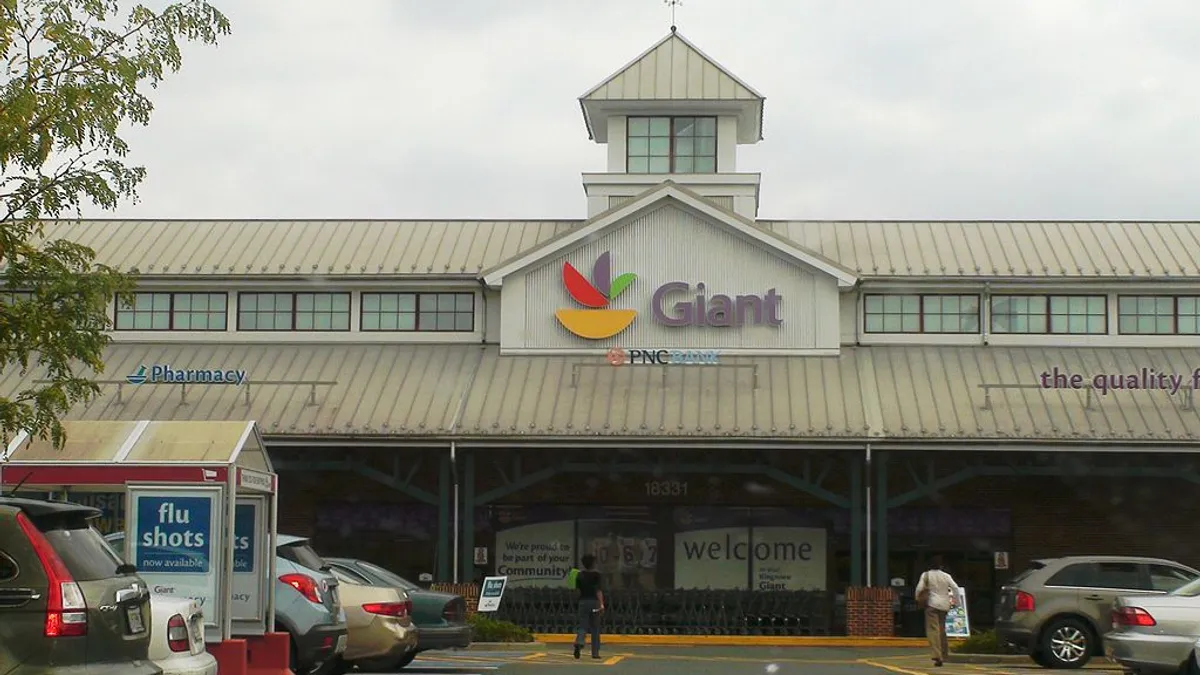Dive Brief:
- Giant Food plans to participate in a pilot program called Produce Rx to help customers in the greater Washington, D.C.-area access healthy foods. The program is in partnership with DC Greens, a nonprofit that works to improve food education, increase food access and advocate for better food policy.
- Through Produce Rx, patients who are experiencing diet-related chronic illness can get a prescription for fresh produce from their doctors, which can be filled at the Giant pharmacy in Washington's Alabama Avenue store. Each week, pharmacists will provide eligible patients with a $20 coupon to purchase fresh fruits and vegetables from the store.
- The pilot program will start with 500 patients who are Medicaid beneficiaries through AmeriHealth Caritas DC, with a goal to expand to more people in the future. Customers can renew their prescriptions with their health care provider during the pilot, which will run through December 31, 2019.
Dive Insight:
With its latest effort, Giant food is joining the "food as medicine" movement that has started to gain momentum in the U.S. as grocers look to support efforts to battle chronic disease. The effort to prescribe healthy foods could save more than $100 billion in health care costs and prevent millions of chronic disease cases, a new study from Tufts University found.
Food prescription programs similar to Produce Rx have been popping up around the country and come in different forms. Many of them target children and adults who live in food deserts or those who can’t afford to buy healthy foods. Some, like Giant’s, offer coupons or vouchers for fruits and veggies. Some provide patients with produce boxes from community farms.
Last year, the Gesinger Health System and the Central Pennsylvania Food Bank opened a Fresh Food Farmacy to prescribe free, healthy food and guidance to diabetic patients in their region. The partnership was designed to make it easier for patients to stick to diets that are full of fresh produce, lean protein and whole grains. The program also helped patients learn to read labels and set nutrition goals with the assistance of nutritionists. One year later, the program has seen positive results, including major weight loss from customers, less emergency room visits and drops in glucose levels.
There has also been an increase of micro-markets inside hospitals or other health facilities to make it more convenient to purchase fresh food. No matter how the programs are designed, experts say they work best when paired with nutrition education, including cooking classes, that help patients make lifelong changes to their lifestyles.
Grocers have caught on to the opportunity to support health care providers in their efforts to use food as a form of treatment for chronic disease. Whether through on-site nutritionists at Hy-Vee's HealthMarket, "shop with a doc" at Ralph's in Southern California or food-as-medicine meal kits, several health-driven initiatives are underway.












